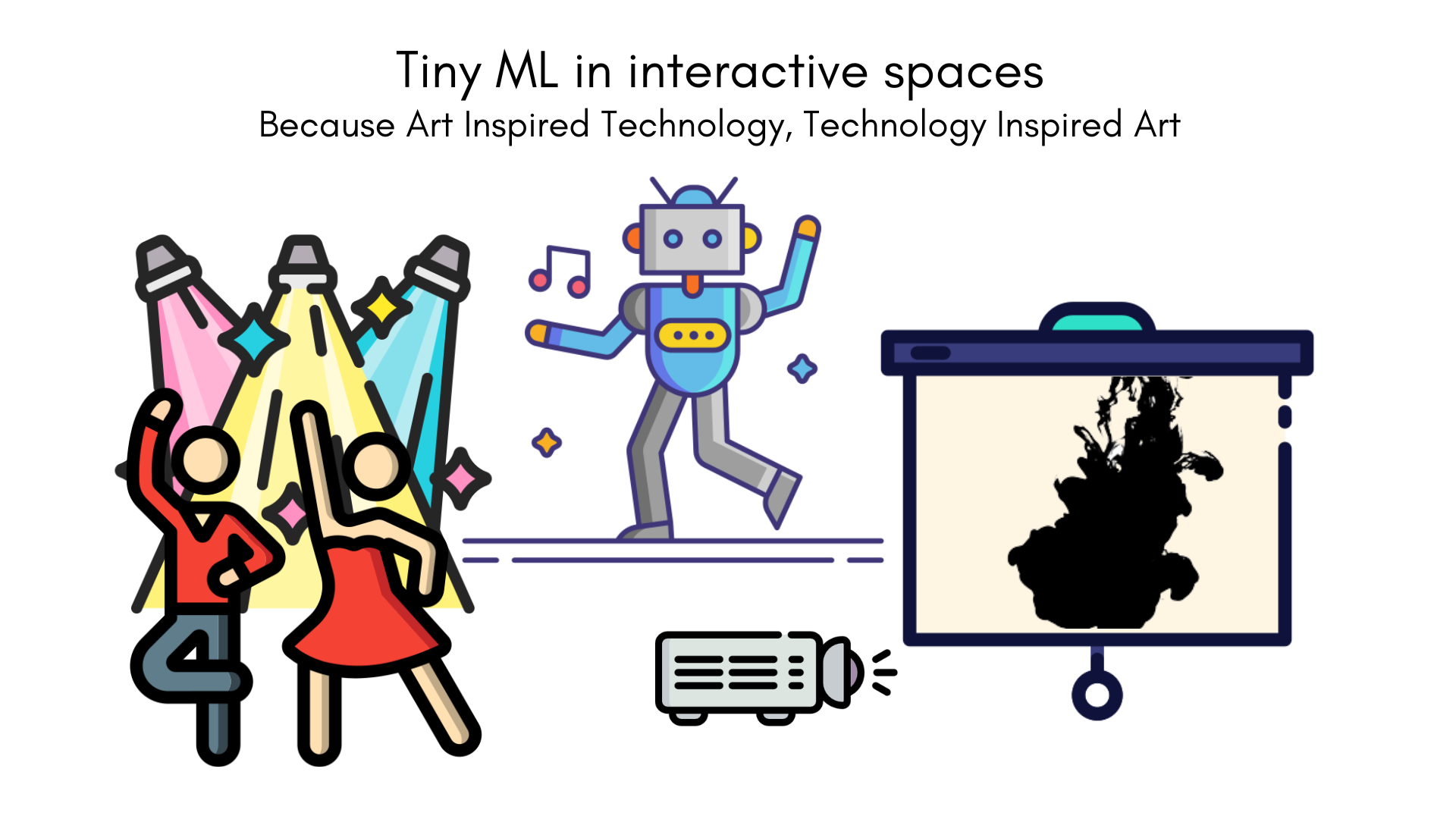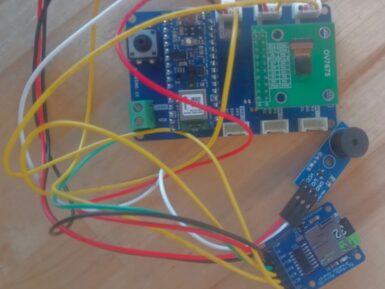
Overview
Meet the only connected RP2040 board. It fits the Arduino Nano form factor, making it a small board with BIG features.
The brain of the board is the Raspberry Pi® RP2040 silicon; a dual-core ARM® Cortex®
M0+ running at 133MHz. It has 264KB of SRAM, and the 16MB of flash memory is off-chip to give you extra storage.
But what’s really exciting is the on-board connectivity options. The hugely popular and highly adaptable u-blox NINA-W102 radio module is on there to make this a true IoT champion. This also means you can harness the power of the cloud, with fully Arduino Cloud compatibility.
It’s got on-board, built-in sensors to turn your builds into powerhouse projects, too. Microphone and motion sensing add a depth of possibilities that’s almost impossible to find in a board of this size.
The Arduino Nano RP2040 Connect is the premium choice for RP2040 devices, and the perfect option for upgrading your projects and unlocking the potential of new ones.
Arduino IoT Cloud Compatible
Use your MKR board on Arduino's IoT Cloud, a simple and fast way to ensure secure communication for all of your connected Things.
TRY THE ARDUINO IOT CLOUD FOR FREE
Get Connected
The u-blox NINA-W102 radio module makes this the only connected RP2040 option. It gives you full WiFi 802.11b/g/n connectivity, along with Bluetooth® and Bluetooth® Low Energy v4.2
Sensor Overload
Packed onto this tiny board are a couple of very useful sensors. A built-in mic is there for sound activation, audio control and even AI voice recognition. The six-axis smart IMU with AI capabilities tells the board which way it’s moving, and adds fall sensing and double-tap activation.
Hard Working Hardware
It might be a small board, but the Nano RP2040 Connect packs a hardware punch. It matches the established Arduino Nano form factor, making it the perfect upgrade for projects of all sizes.
More Memory
With 16MB flash memory that’s external to the microprocessor, there’s bags of room for your code and storage needs.
Power Pins
The programmable I/O pins have functions that bigger boards only dream of; 22 digital, 20 with PWM and 8 analog.
Raspberry Pi® Pico Compatible
Smart software options for a very smart device. It has full support for the entire RP2040 software ecosystem.
Arduino Lover
Supports the Arduino programming language, the IDE 2.0 and all those awesome libraries.
Python Power
Full support for MicroPython (available in September, 2021). Get a Nano RP2040 Connect, and it comes with a FREE OpenMV license for machine vision projects.
Arduino Cloud Ready
Program and operate the Nano RP2040 Connect directly from your web browser. Fully compatible from day one. Upload your sketches over-the-air with instant remote control from the free Arduino IoT Remote smartphone app.
Tech specs
|
Board
|
Nano RP2040 Connect with Headers |
|
|
SKU: ABX00053 |
||
|
Microcontroller |
Raspberry Pi® RP2040 |
|
|
USB connector |
Micro USB |
|
|
Pins |
Built-in LED pin |
13 |
|
Digital I/O Pins |
20 |
|
|
Analog Input Pins |
8 |
|
|
PWM pins |
20 (Except A6, A7) |
|
|
External interrupts |
20 (Except A6, A7) |
|
|
Connectivity
|
Wi-Fi |
Nina W102 uBlox module |
|
Bluetooth® |
Nina W102 uBlox module |
|
|
Secure element |
ATECC608A-MAHDA-T Crypto IC |
|
| Sensors |
IMU |
LSM6DSOXTR (6-axis) |
| Microphone | MP3DT06JTR | |
|
Communication |
UART |
Yes |
|
I2C |
Yes |
|
|
SPI |
Yes |
|
|
Power |
Circuit operating voltage |
3.3V |
|
Input Voltage (VIN) |
5-21V |
|
|
DC Current per I/O pin |
4 mA |
|
|
Clock speed |
Processor |
133 MHz |
|
Memory |
AT25SF128A-MHB-T |
16MB Flash IC |
|
Nina W102 uBlox module |
448 KB ROM, 520KB SRAM, 16MB Flash |
|
|
Dimensions |
Weight |
6 g |
|
Width |
18 mm |
|
|
Length |
45 mm |
|
Conformities
Resources for Safety and Products
Manufacturer Information
The production information includes the address and related details of the product manufacturer.
Arduino S.r.l.
Via Andrea Appiani, 25
Monza, MB, IT, 20900
https://www.arduino.cc/
Responsible Person in the EU
An EU-based economic operator who ensures the product's compliance with the required regulations.
Arduino S.r.l.
Via Andrea Appiani, 25
Monza, MB, IT, 20900
Phone: +39 0113157477
Email: support@arduino.cc
Documentation
OSH: Schematics
Arduino NanoRP2040 Connect is open-source hardware! You can build your own board using the following files:
SCHEMATICS IN .PDFPINOUT IN .PDFDATASHEET IN .PDF
Download the full pinout diagram as PDF here
All CAD files are available for download at the Nano RP2040 Connect's Documentation Page.
Interactive Board Viewer
Learn more
Get Inspired

An intelligent device to track moves with responses during an interactive space with mapping, backlight, music and smart sculptures. This project makes use of a machine learning algorithm capable of tracking and detecting moves to identify associated gesture recognition through a microcontroller. Smart sculptures, lighting, music and video projection to trigger with each assigned gesture, creating a powerful AV experience highlighting the incredible potential of TinyML for the performing arts. This allows the corresponding media set Tiny ML in interactive to play when the right move was made because all these elements interact to create a new experience. This allows us to create Interactive installations, these sculptures use a combination of motors, sensors, and other electronics to create an immersive and interactive experience for the viewer. They may include projections, sound, and other sensory elements to create a complete experience.

With an array of onboard sensors, Bluetooth® Low Energy connectivity, and the ability to perform edge AI tasks thanks to its nRF52840 SoC, the Arduino Nano 33 BLE Sense is a great choice for a wide variety of embedded applications. Further demonstrating this point, a group of students from the Introduction to Embedded Deep Learning course at Carnegie Mellon University have published the culmination of their studies through 10 excellent projects that each use the Tiny Machine Learning Kit and Edge Impulse ML platform. Wrist-based human activity recognition Traditional human activity tracking has relied on the use of smartwatches and phones to recognize certain exercises based on IMU data. However, few have achieved both continuous and low-power operation, which is why Omkar Savkur, Nicholas Toldalagi, and Kevin Xie explored training an embedded model on combined accelerometer and microphone data to distinguish between handwashing, brushing one’s teeth, and idling. Their project continuously runs inferencing on incoming data and then displays the action on both a screen and via two LEDs. Categorizing trash with sound In some circumstances, such as smart cities or home recycling, knowing what types of materials are being thrown away can provide a valuable datapoint for waste management systems. Students Jacky Wang and Gordonson Yan created their project, called SBTrashCat, to recognize trash types by the sounds they make when being thrown into a bin. Currently, the model can three different kinds, along with background noise and human voices to eliminate false positives. Distributed edge machine learning The abundance of Internet of Things (IoT) devices has meant an explosion of computational power and the amount of data needing to be processed before it can become useful. Because a single low-cost edge device does not possess enough power on its own for some tasks, Jong-Ik Park, Chad Taylor, and Anudeep Bolimera have designed a system where
FAQs
Can I power the Nano RP2040 with a battery?
Batteries: the Nano RP2040 Connect has no battery connector, nor charger. You can connect any external battery of your liking as long as you respect the voltage limits of the board.
Does the Nano RP2040 have I2C pins? / Can I use I2C communication with the Nano RP2040?
- I2C pins: Pins A4 and A5 have an internal pull up and default to be used as an I2C Bus so usage as analog inputs is not recommended.
- Operating voltage: The operating voltage for Nano RP2040 Connect is 3.3V
What is the 5V pin for?
5V: This pin outputs 5V from the board when powered from the USB connector. Note: for it to work, you need to short their VBUS jumper on the back of the board. If you power the board from the VIN pin, you won’t get any regulated 5V and even if you do the solder bridge.
Does the Nano RP2040 have PWM pins?
PWM: All pins except for A6 and A7 are available for PWM.
How can I use the embedded RGB LED?
RGB: The RGB LEDs are connected through the Wi-Fi module, so it is required to include the WiFiNINA library to use it.











